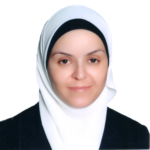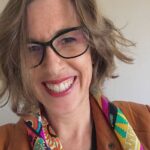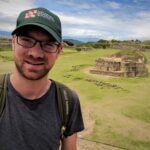The heritage agenda in the Levant, whether focused on tourism, local communities, or sustainability, has typically been set by external agents. This event addresses this issue through presentations and discussion from two previous winners and co-authors of CBRL’s Contemporary Levant best paper prize – Christina Luke, 2021 – and Shatha Abu-Khafajah, 2019. The discussion will be chaired by cultural heritage specialist, Paul Burtenshaw.
In the presentation based on her and Lynn Meskell’s paper, ‘Developing Petra: UNESCO, the World Bank, and America in the desert’, Christina Luke charts the nascent development agendas for archaeological heritage and tourism at Petra, Jordan. Findings reveal that saving Petra was underwritten by an increasing American vigilance in the Middle East and technocratic tourism-as-assistance agenda resulting in an overburden of international bureaucracy and consultancy culture.
Drawing on the co-authored paper with Riham Miqdadi ‘Prejudice, military intelligence, and neoliberalism: Examining the local within archaeology and heritage practices in Jordan’ Shatha Abu-Khafaja will examine the ‘local’ within archaeology and heritage practices in Jordan. Sustainable development on the basis of local communities’ participation dominates contemporary heritage practices in Jordan. Shatha will situate archaeology and heritage within colonialism and neoliberalism to examine how, in the Arab region, local communities have shifted from periphery to centre. Despite participatory paradigms, the shifts seem to have almost always come ‘from the outside’, operating on sites and peoples alike. Shatha argues that in order to make sustainable development in the field of archaeology and heritage change has to come from within. This implies questioning western approaches and introducing conceptual and practical alternatives and options based on cultural localities.
About the speakers:
 Shatha Abu-Khafajah graduated as an architect from the University of Jordan in 1997. She specialized in documentation and conservation of archaeological heritage while doing her master degree in archaeology. Her PhD in cultural heritage management from Newcastle University enabled her to synthesise architecture and archaeology with special interest in establishing a sustainable approach to heritage management in the Arab region that is community-based and context–oriented. She is currently an associate professor at the Hashemite University in Zarqa, Jordan. Her research focuses on examining the relationship between people and place. Currently, she is exploring ‘the decolonial options’ in cultural and heritage studies
Shatha Abu-Khafajah graduated as an architect from the University of Jordan in 1997. She specialized in documentation and conservation of archaeological heritage while doing her master degree in archaeology. Her PhD in cultural heritage management from Newcastle University enabled her to synthesise architecture and archaeology with special interest in establishing a sustainable approach to heritage management in the Arab region that is community-based and context–oriented. She is currently an associate professor at the Hashemite University in Zarqa, Jordan. Her research focuses on examining the relationship between people and place. Currently, she is exploring ‘the decolonial options’ in cultural and heritage studies
 Christina Luke is Associate Professor of Archaeology and History of Art at Koç University in Istanbul, Turkey. She’s conducted archaeological and ethnographic fieldwork in Central America, Mexico, the Balkans, and Turkey. Her professional background includes the US Department of State as well as training programmes with the governments of Egypt, Jordan, Syria, Iraq, Serbia, Montenegro, and Turkey. Her research has been funded by the US National Endowment for the Humanities, US National Science Foundation, British Cultural Protection Fund, and the UK Arts & Humanities Research Council. Her current projects focus on food and society, Ottoman conservation policies, and the historiography of archaeology and preservation in the Middle East, North Africa and Turkey. This work grew from journal articles and her 2019 book, A Pearl in Peril: Heritage and Diplomacy in Turkey (Oxford University Press). She also serves as Editor for the Journal of Field Archaeology.
Christina Luke is Associate Professor of Archaeology and History of Art at Koç University in Istanbul, Turkey. She’s conducted archaeological and ethnographic fieldwork in Central America, Mexico, the Balkans, and Turkey. Her professional background includes the US Department of State as well as training programmes with the governments of Egypt, Jordan, Syria, Iraq, Serbia, Montenegro, and Turkey. Her research has been funded by the US National Endowment for the Humanities, US National Science Foundation, British Cultural Protection Fund, and the UK Arts & Humanities Research Council. Her current projects focus on food and society, Ottoman conservation policies, and the historiography of archaeology and preservation in the Middle East, North Africa and Turkey. This work grew from journal articles and her 2019 book, A Pearl in Peril: Heritage and Diplomacy in Turkey (Oxford University Press). She also serves as Editor for the Journal of Field Archaeology.
About the chair:
 Paul Burtenshaw is an independent specialist in cultural heritage and sustainable development. He has worked on a number of community development and tourism projects in Jordan and globally. Burtenshaw holds a PhD from UCL in heritage and economic development and was the Director of Projects at Sustainable Preservation Initiative between 2014 and 2019.
Paul Burtenshaw is an independent specialist in cultural heritage and sustainable development. He has worked on a number of community development and tourism projects in Jordan and globally. Burtenshaw holds a PhD from UCL in heritage and economic development and was the Director of Projects at Sustainable Preservation Initiative between 2014 and 2019.
Webinar recordings
Watch the webinar on our YouTube channel or listen to the podcast.












